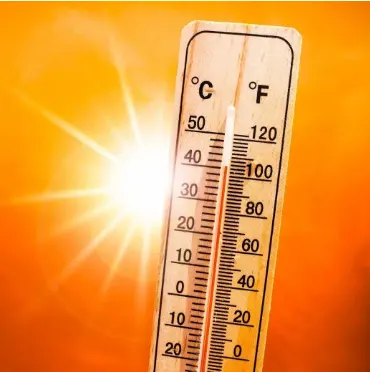Health expert stressed media awareness drives and precautions especially for workers outdoors and elderly as prolonged heat exposure may lead to heat-related illnesses with complications such as increased risk for heart disease.
“The number of fatal heart attacks and strokes could triple as extreme heat increases with global warming”. It is crucial to be aware of and recognize the early symptoms of heat-related illnesses, she said.
“Those people who are having outdoor jobs like sales and manual jobs construction workers are more prone to health-related issues and even young children and old age people with chronic medical problems are easily prone to heat-related health issues,” she said.
“Those who are even more dehydrated can present with nausea, palpitations, and flushed skin. We advise people to stay indoors during peak hours of the day, keep well hydrated, and wear light cotton clothing and a hat with sunglasses.”
She highlighted that intense heat waves are being reported across many parts of the globe due to global warming.
“It is very important to educate the public about the symptoms associated with extreme heat exposure, she said, adding, they are tiredness, dizziness, muscle cramps, nausea, sweating, rapid heartbeat, dark-colored urine etc.”
“When people prepare properly through heat acclimatization and carry fluids and eat properly, they can do very well in hot environments,” she said.
She suggested that people should stay hydrated, drink plenty of fluids throughout the day, especially water and electrolyte-rich beverages, to prevent dehydration.
Avoid excessive consumption of caffeinated or alcoholic beverages, as they can contribute to dehydration.
Earlier this year, more than 1,000 active fires burned throughout Canada for weeks. The wildfires sent continuous smoke clouds of fine particulate matter aloft, affecting a wide geographic area and potentially threatening the health of millions of North Americans.
The study found that extreme high temperatures combined with fine particulate matter in the air — such as the sort sent aloft by wildfires — can double one’s risk of a myocardial infarction, or heart attack.









